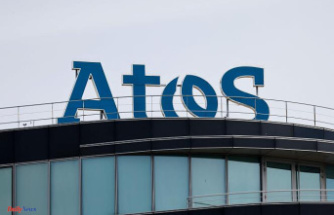The entry of the Chinese state-owned company Cosco into the port of Hamburg is not yet a done deal. After the chancellor's office pushed through a slimmed-down deal, the shipowner left all options open - up to and including failure.
The Chinese state shipping company Cosco has reacted cautiously to the restrictions imposed by the federal government on entering the operator of a terminal at the Port of Hamburg. The decision and the conditions have not yet been received and must be checked, it said in a statement. "The transaction is subject to the satisfaction or waiver of conditions precedent. There is no guarantee that the transaction will take place or when it can take place," investors are warned.
Cosco reminds that the purchase of 35 percent and not just 24.9 percent was actually agreed with the logistics group HHLA. The Federal Cabinet previously decided on a partial ban, which gives Cosco only 24.9 percent of the terminal and no influence on the management of the operating company. Hamburg's Mayor Peter Tschentscher welcomed the government's decision. "It is of the utmost importance for Germany's security and independence that the Port of Hamburg can hold its own in international competition and work efficiently," he said. "The participation of shipping companies in the operation of terminals is customary in the industry, is practiced worldwide for the efficient organization of logistics and must also be possible in Hamburg."
Chinese Foreign Ministry spokesman Wang Wenbin only said that the Chinese government hopes that "the relevant parties will see the pragmatic cooperation between China and Germany rationally and stop baseless speculation". BASF boss Martin Brudermüller spoke before an overheated debate. "I think it is urgently necessary that we get away from China bashing and look at ourselves a little self-critically." Chancellor Scholz is planning a trip to China with a business delegation next week.
The decision was preceded by a conflict within the federal government between the Chancellery and a number of ministries, which had spoken out in favor of a complete ban on Chinese entry. The government resolved the conflict in two steps. On the one hand, the company that operates the Tollerort terminal, the smallest of four container terminals in the Port of Hamburg, was not classified as a critical infrastructure. As a result, the threshold for a permit requirement according to the Foreign Trade and Payments Act rose from 10 to 25 percent. Since only 24.9 percent were allowed, at least this entry is no longer subject to approval. The ministries could therefore no longer appeal.
However, both the Green-led foreign and economic ministries and the FDP-led ministries in the government backed a very critical protocol note. The note presented by the Federal Foreign Office points to "significant risks" if elements of the European transport infrastructure are influenced and controlled by China - while China itself does not allow Germany to participate in Chinese ports. China has already clearly shown that it is willing to use economic measures to achieve political goals. "In this respect, the acquisition of the container terminal not only has an economic, but above all a geopolitical component."
The Chancellery and the City of Hamburg, on the other hand, had pointed out that it was an operating company and not ownership of the terminal itself. The SPD ministries did not support the protocol note. A spokeswoman for Home Secretary Nancy Faeser said the reduction in Cosco's stake had allayed concerns. "Scholz was aware of the dimension of the decision," said a government spokeswoman. With a relatively small participation, the Chancellor sees no strategic influence for China.
The Green-led Ministry of Economic Affairs emphasized that the shipping company is now prohibited from acquiring "atypical" control over the operating company via special rights. You should not be granted any contractual veto rights in strategic business or personnel decisions or appoint members of the management. The participation of other Chinese companies in the operating company could also trigger a new audit, said a spokeswoman for the Ministry of Economic Affairs.












